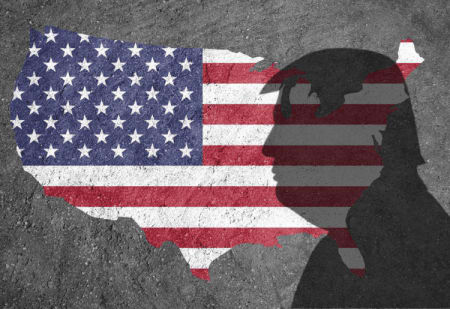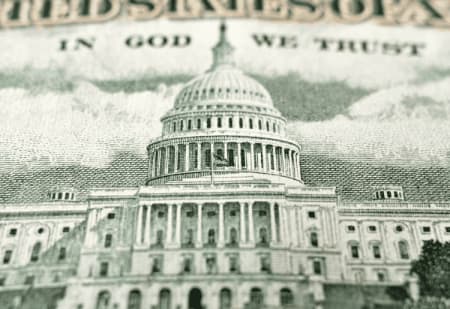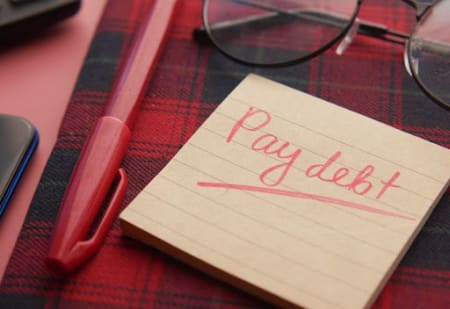Learn More about Debt Consolidation Loans
Explore different debt consolidation loan options with the following resources written by finance professionals.
This site is a free online resource that strives to offer helpful content and comparison features to our visitors. We accept advertising compensation from companies that appear on the site, which may impact the location and order in which brands (and/or their products) are presented, and may also impact the score that is assigned to it. Company listings on this page DO NOT imply endorsement. We do not feature all providers on the market. Except as expressly set forth in our Terms of Use, all representations and warranties regarding the information presented on this page are disclaimed. The information, including pricing, which appears on this site is subject to change at any time.

Secured vs. Unsecured Debt Consolidation Loans
Consolidation loans offer a way to simplify your finances and make your debt more manageable.

America’s Most Frugal Cities: Where Savvy Spending Shapes Everyday Life
Frugality isn’t just about clipping coupons or skipping your morning latte—it’s a mindset. And in a world where prices seem to rise faster than paychecks, more Americans are embracing this intentional way of spending.

How to Consolidate Credit Card Debt: A Guide to Simplifying Payments
Instead of juggling different balances and due dates, credit card debt consolidation combines everything into one straightforward monthly payment. Plus, you'll often benefit from lower interest rates, which can reduce your monthly payments and help you break free from debt sooner.

Debt Consolidation Loans: Should You Apply Now or Wait for the Fed to Cut Interest Rates?
Navigating the 2026 credit market requires balancing the urgency of high-interest debt against the promise of shifting Federal Reserve policies.

Medical Debt Consolidation: What It Is and How to Do It
Medical bills from various sources—credit cards, lenders, family, friends, or collection agencies—can quickly become overwhelming.

Debt Consolidation vs. Credit Counseling
The path to financial freedom starts with the right strategy. Discover how to manage your debt and build a stronger financial future.

What Trump's Interest Cap Can Mean For Your Credit Card Debt
This announcement comes amid soaring credit card debt, which has reached approximately $1.166 trillion, and average interest rates that exceed 20%.

What’s the Difference Between Debt Consolidation and Debt Settlement?
Struggling with multiple debts? Understanding the difference between debt consolidation and debt settlement is crucial for managing your financial future. Let's explore these two debt management strategies to help you make an informed decision.

Tips & Tricks for Choosing a Debt Consolidation Loan
Having debt can be stressful. Especially when that debt is spread out across a variety of credit cards, personal loans, medical bills, and more. Often, the right course of action is to get a debt consolidation loan and bundle everything into one low monthly payment. In this article, I’m going to outline some of the top things to consider when choosing a debt consolidation loan.

Federal Funding Freeze: What Could Trump's Order Mean for Americans?
A single executive order sparked nationwide panic as billions in federal funding hung in the balance.

Debt Management Plans: What They Are and How They Work
If keeping up with debt payments feels like you’re swimming against the current, a debt management plan (DMP) may offer a structured path to a debt-free life.

How to Consolidate Business Debt
Business debt consolidation offers a streamlined solution by combining various debts into a single obligation with one consistent payment. This approach simplifies financial management, can enhance cash flow predictability, and potentially reduce costs through lower interest rates.

7 States Where Foreclosures Are Spiking
The post-pandemic housing market is showing troubling signs as foreclosure numbers climb nationwide.

Our Methodology:
We’ve created the following process to identify the most suitable debt consolidation companies for your needs and deliver on our mission to help you make informed decisions.

How to Get Out of Debt Quickly Using Consolidation Strategies
Debt consolidation can help some borrowers pay off debt faster by combining their debts, simplifying their monthly payments, and even saving money on interest.

The Risks of Using Your 401(k) to Consolidate Debt
If you’re struggling to pay your debts and you have money in a 401(k), you can tap those funds for debt relief and work on paying back your retirement fund over time. Using your 401(k) to consolidate debt has some strong advantages, depending on what method you use – but it also comes with significant downsides.

How Does a Home Equity Loan Work?
Home equity loans allow you to borrow money using the equity you’ve established in your home as collateral. They have fixed interest rates and monthly payments, and you pay back the loan over a set period of time – from five to 30 years

Is Debt Consolidation a Good Idea? — Everything You Need to Know
If you're finding it difficult to meet minimum monthly payments for your credit cards or loans, simply cutting on monthly expenditures might not be enough.

Balancing Household Debt in a High-Interest Economy: 5 Tips for 2026
In 2026's high-interest economy, the difference between financial struggle and success lies in how you manage household debt.

What Is My Credit Score if I Have No Credit History?
When you have no credit history, you also have no credit score. This happens because there's simply no information available to create a credit report or calculate a score, either because you've never used credit before or haven't used it in a very long time.

How Does Debt Consolidation Affect Your Credit Score?
Debt consolidation is the process of combining multiple debts into a single debt with one monthly payment. You may even be able to lower your monthly payment or save money by reducing your interest rates.

10 Ways to Rebuild Credit
When your credit isn't in the best shape, reaching your financial goals becomes significantly more challenging. You'll face difficulties getting approved for credit, and might also miss out on the best interest rates available. It might even prevent you from landing certain jobs or renting the home you want.

Credit Score Ranges: What They Mean and How They Work
Credit scores are categorized into ranges that go from "poor" up to "excellent." The range your credit score falls into can help creditors decide whether to approve or deny your credit applications – and can even determine what interest rates you end up paying.

How to Consolidate Payday Loans: A Step-by-Step Guide
Payday loans offer quick cash when you're in a financial bind, but they come with significant drawbacks.

Debt Consolidation vs. Bankruptcy
American households carry a staggering $17.94 trillion in total debt, with credit card balances reaching $1.17 trillion. If you're among the millions feeling the weight of debt, understanding your relief options is crucial.

The 5 States With the Most Consumer Bankruptcies
In 2024, bankruptcies rose 14% over the filings in 2023. This increase in bankruptcy filings comes as no surprise, as economic pressures amid inflation, rising interest rates, and the sunsetting of pandemic hardship programs boil over for many.

Student Loan Refinancing Vs. Consolidation: Which Is Best for You?
Do you have hefty student loans that you’re still working on repaying? Are you wondering if there’s a smarter way you could be repaying them, either through refinancing or consolidation?

How to Get Out of Debt Fast in 2026: A Step-by-Step Guide
Whether you’re struggling with high-interest credit cards or personal loans, 2026 is the year to take control. If you're searching for how to get out of debt fast, this guide breaks down 9 powerful, expert-backed strategies — from DIY budgeting to smart consolidation. No fluff, just real solutions that work.

Is a Debt Consolidation Loan Right for Your Credit Card Debt?
Managing credit card debt can feel overwhelming, especially when juggling multiple accounts, balances, and interest rates. Debt consolidation offers a way to simplify this burden by combining your various credit card debts into one loan, often with a lower interest rate.

Best Debt Consolidation Loans for Bad Credit
Struggling to keep up with multiple high-interest debt payments can feel overwhelming, but having bad credit doesn't mean you're out of options.

Debt Consolidation vs. Balance Transfer Card: Which Option Is Better?
Debt consolidation combines all your existing debts into one manageable balance with a single monthly payment. Plus, it could potentially save you money if you qualify for a lower interest rate.

Debt Management vs. Debt Consolidation: Which is Better?
Feeling overwhelmed by debt? Whether you're dealing with maxed-out credit cards or juggling multiple payments, understanding your options is key. This guide compares debt management vs. debt consolidation — two leading strategies for how to get out of debt in 2025. We'll break down the pros, cons, and ideal use cases for each approach.

Do You Have Too Much Debt?
Debt can be a very useful strategy for reaching your financial goals. It can help you buy a home, start a business, or get an education. And you can use it to afford everyday purchases.

Costs Are Rising - Here’s How to Manage Your Spending
Costs of everyday expenses continue to rise — and it’s straining many Americans’ budgets.

Debt Relief Programs: What They Are, How They Work, and When to Consider One
Understanding how debt relief programs work can help you find the right financial path when your debt becomes unmanageable — without jumping straight into bankruptcy.
